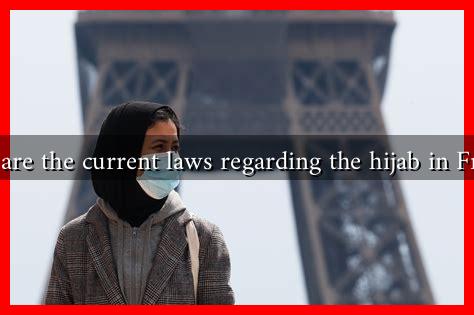-
Table of Contents
What are the Current Laws Regarding the Hijab in France?
France has long been a focal point of discussions surrounding secularism, religious freedom, and cultural identity, particularly in relation to the hijab. The country’s laws regarding the hijab are rooted in its commitment to laïcité, or secularism, which aims to separate religion from public life. This article explores the current legal framework surrounding the hijab in France, its implications, and the ongoing debates that shape this contentious issue.
The Legal Framework: A Historical Perspective
The legal landscape concerning the hijab in France has evolved significantly over the years. Key legislative milestones include:
- 2004 Law on Religious Symbols: This law prohibits the wearing of conspicuous religious symbols, including the hijab, in public schools. The rationale behind this legislation is to maintain a secular educational environment.
- 2010 Burqa Ban: France became the first European country to ban the full-face veil (niqab and burqa) in public spaces. This law was justified on the grounds of public safety and the promotion of gender equality.
These laws reflect France’s commitment to secularism but have also sparked significant debate regarding individual rights and religious expression.
Current Regulations on the Hijab
As of 2023, the following regulations govern the wearing of the hijab in France:
- Public Schools: The 2004 law remains in effect, prohibiting students from wearing the hijab and other conspicuous religious symbols in public schools. This has led to numerous controversies and legal challenges, with some arguing that it infringes on personal freedoms.
- Public Spaces: While the hijab is not banned in public spaces, the 2010 law against full-face veils applies. Women wearing a hijab that does not cover their face are allowed to do so, but they must navigate a complex social landscape that often subjects them to scrutiny and discrimination.
- Workplace Regulations: Employers in France have the right to enforce dress codes, which can include restrictions on religious symbols. This has led to cases where Muslim women have been dismissed or pressured to remove their hijabs in professional settings.
Social Implications and Public Sentiment
The laws surrounding the hijab have significant social implications. Public sentiment in France is often polarized:
- Support for Secularism: Many French citizens support the laws as a means to uphold secular values and promote social cohesion.
- Concerns Over Discrimination: Critics argue that these laws disproportionately target Muslim women and violate their rights to religious expression. Reports indicate that Muslim women often face discrimination in various aspects of life, including employment and education.
According to a 2021 survey by the Pew Research Center, approximately 62% of French respondents believe that wearing religious symbols in public should be restricted, reflecting a strong inclination towards secularism. However, this sentiment raises questions about the balance between secularism and individual freedoms.
Case Studies: Real-Life Impacts
Several high-profile cases have highlighted the challenges faced by Muslim women in France:
- Leila’s Case (2018): A young woman was expelled from her university for wearing a hijab during a public event. This incident sparked nationwide protests advocating for the rights of Muslim women in educational institutions.
- Fatima’s Dismissal (2020): A teacher was dismissed from her position for wearing a hijab in a private school. This case raised questions about the extent of employers’ rights to enforce dress codes and the implications for religious expression.
Conclusion: The Ongoing Debate
The laws regarding the hijab in France are emblematic of a broader struggle between secularism and religious freedom. While the French government maintains that these laws are essential for preserving national identity and social cohesion, many argue that they infringe upon individual rights and disproportionately affect Muslim women. As France continues to grapple with these issues, it is crucial to foster dialogue that respects both secular principles and the rights of individuals to express their religious beliefs.
In summary, the current laws regarding the hijab in France reflect a complex interplay of historical, social, and legal factors. The ongoing debate surrounding these laws underscores the need for a nuanced understanding of secularism and religious freedom in a multicultural society. For further reading on this topic, you can visit Human Rights Watch.


